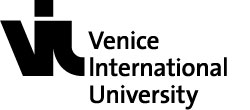Cities and Cultural Production
Professors
Schedule
Course description
According to many economists, sociologists and geographers, such as Allen J. Scott or Richard Florida or Peter Hall, major portions of the modern cultural economy are concentrated in global cities like Los Angeles, New York, London or Tokyo, where the peculiar geographic underpinnings are essential to understand processes of creativity and innovation in the cultural economy.
Nevertheless, second-tier cities with specific economic patterns like Milan or Berlin or with a unique heritage provision like Venice have also developed forms of creative and leisure economies. The module will address relevant questions in social science and urban studies: Why some cities growth and others decline? What are the effects of a cultural-driven model of growth on urban areas? How have digital transformation and Covid changed the cultural economy of cities?
Starting from that, the course aims at:
• Investigating how creative industries affect the processes of urban growth by focusing on the relationships between urban landscapes/geographies and creative innovation and production systems.
• Integrating economic, managerial, urban and cultural studies dealing with the theme of creative professionals and creativity skills.
• Developing competencies to carry on field research within the urban setting; as well as to understand job responsibilities as urban marketing experts within territorial agencies; urban events’ organizers; researchers in private/public research centers working on creative industries and urban settings; consultants for developers and municipalities. Links with already established professionals in the field will be created through urban exploration, institutional visits, and project works.
The module is built around three major blocks of content. In the first part we will analyse the notion of city, the drivers of growth and the pattern of urban development by comparing theories in different social sciences. In the second part we will focus on the characteristics of cultural production in urban areas using case studies to understand the impact of cultural production on creative cities and digital innovation on smart cities. The third part of the module is a critical review of the former theories and the evaluation of the effect of cultural industries on public space, preservation of cultural heritage, overtourism, gentrification and social inequalities.
From the methodological perspective, the teaching approach will include:
- Frontal lessons on the fundamental notions of urban and cultural theories;
- Presentation of case studies on specific projects in cities around the world;
- Class discussion of specific topics based on academic papers;
- Field research with meetings with stakeholders and urban exploration in Venice.
About 25% of student time will be spent on field research in Venice. Students will work in groups to gather observations and data on the consequences of the intense use of built heritage and events as major tourist attractions. Also with the support of an international benchmark they will evaluate the feasibility of different policies aimed at controlling tourism flows, reducing crowding effects and de-population, fostering re-urbanization and economic diversification.
Learning outcomes of the course
- Understanding the most important theories that explain the existence and growth of urban agglomerations
- Comparing strategies and policies in cultural-driven urban development
- Evaluating positive and negative effects of cultural industries in large and small urban agglomerations, peripheries, south-word cities
- Assessing the feasibility of smart city projects
- Planning field research, building comparative case studies, gathering evidence to confirm or refute a thesis
Teaching and evaluation methods
Students will be evaluated on individual participation (20%), group project (50%) and individual exam (30%).
Group projects will be planned with the instructor and will focus on the relationship between cultural productions and some of three major problems of the city of Venice: Overturism and tourism mono-culture; environmental risk and sustainable growth, depopulation and cultural heritage preservation.
Bibliography
Essential bibliography- more material will be delivered by the instructor
• Batty, M., 2013. Big data, smart cities and city planning. Dialogues in human geography, 3(3), pp.274-279.
• Florida R, Rodríguez-Pose A, Storper M (2020) Cities in a Post-COVID World. Papers in Evolutionary Economic Geography # 20.41. Utrecht, the Netherlands: Utrecht University.
• Gutierrez-Posada D., Tasos Kitsos, Max Nathan & Massimiliano Nuccio (2022): Creative Clusters and Creative Multipliers: Evidence from UK Cities, Economic Geography, DOI: 10.1080/00130095.2022.2094237
• Lee, N., and Rodríguez-Pose, A. 2014. Creativity, cities, and innovation. Environment and Planning A: Economy and Space 46 (5): 1139–59
• Ley, D., 2003. Artists, aestheticisation and the field of gentrification. Urban studies, 40(12), pp.2527-2544.
• Molotch H. (1976) The City as a Growth Machine: Toward a Political Economy of Place, The American Journal of Sociology, 82, 2, 309-332.
• Richards, G. and Wilson, J. (2006) Developing Creativity in Tourist Experiences: A Solution to the Serial Reproduction of Culture? Tourism Management 27, 1209-1223.
• Rodríguez-Pose, A., 2018. The revenge of the places that don’t matter (and what to do about it). Cambridge journal of regions, economy and society, 11(1), pp.189-209.
• Roy, A., (2011). Slumdog Cities: Rethinking Subaltern Urbanism. International Journal of Urban and Regional Research, 35.2, pp. 223-238.
• Sassen, S. (2005) The Global City: Introducing a Concept. Brown Journal of World Affairs, 11 2, 27-43
• Scott A.J. & Storper M., 2009 Rethinking human capital, creativity and urban growth, Journal of Economic Geography, 9, 147–167
• Zukin S., (2012) The social production of urban cultural heritage: Identity and ecosystem on an Amsterdam shopping street. City, Culture and Society, 2012 –
Elsevier
No specific knowledge is required even if some basic notions in economics and management theories can help.
Last updated: February 29, 2024




















